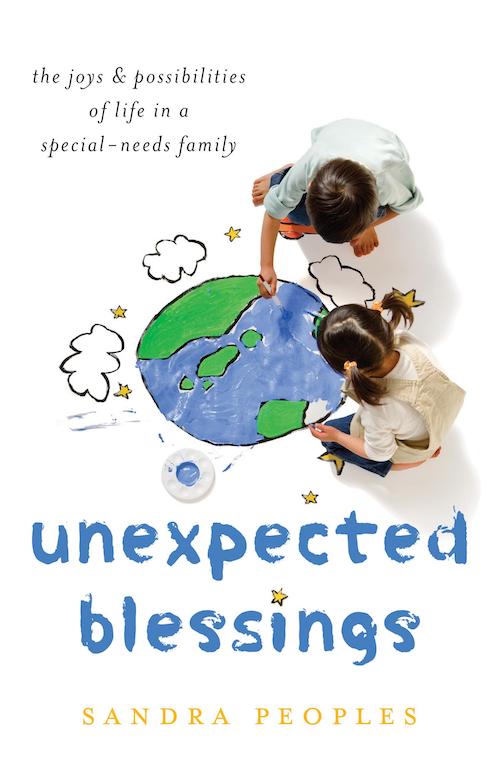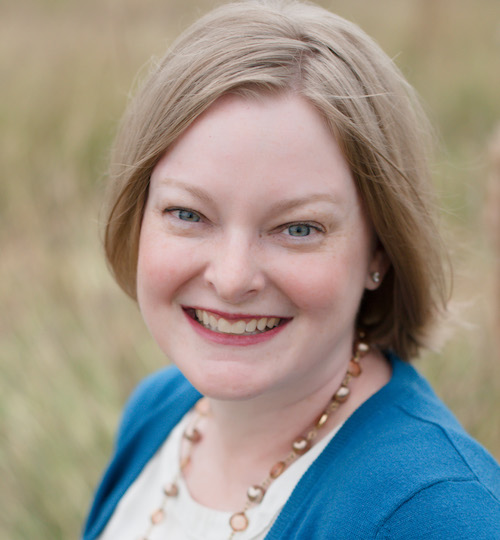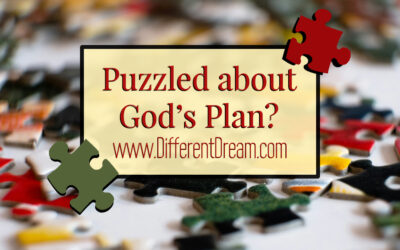Unexpected Blessings: An Interview with the Author

Sandra Peoples is the author of the book, Unexpected Blessings: The Joys and Possibilities of Life in a Special-Needs Family. She’s joining us today to answer a few questions about her experiences as a special-needs sibling and mom.
1. Hearing a diagnosis for a child can be a scary experience for any family. How did you and your husband react to first hearing your son’s autism diagnosis, and what advice do you have for parents who are going through this process with their children?
Diagnoses come at different times for different disabilities. Some parents hear them when they are still pregnant. Some at birth. Some read a list in adoption papers. For us, it came when James was three years old. We were finally honest with the pediatrician about the ways James was falling behind what was expected. And we were honest with ourselves about what that might mean. I reacted with relief because there was a name for all that was different about him and that meant we could get help. My husband reacted first with doubt and fear. It took us a couple months to adjust to our new normal and feel like a team. My advice is to be patient with each other. Do your best to support each other and not pressure the other person for grieving or adjusting at a different rate than you do. Reach out to your pastor and ask for counseling recommendations if you feel that would be helpful.
2. What harmful messages do new parents hear from friends, family members, and even other Christians that hurt more than they help? (examples: your child’s disabilities are because of your sin, if you pray hard enough he will be healed, and God won’t give you more than you can handle)
In addition to the ones listed, one I didn’t like was “God knew what He was doing when He gave James to you!” It is supposed to be a compliment, implying we have what it takes to get James everything he needs to thrive. But at the time, I could think of a lot of other people who deserved the hardship I felt like we were going through! I quickly learned that I was being extra sensitive because of our pain and needed to give people more grace. Because at least they were trying to say something. Saying nothing is worse than saying the wrong thing. I do try to encourage others to lead with empathy instead of answers in times like this. They can point friends to the hope we have in Christ when it feels appropriate, but the first step is to validate whatever they are feeling as legitimate. Romans 15:15 says “Be joyful in hope, patient in affliction, faithful in prayer.” We often pray for suffering to be over as quickly as possible, but Scripture tells us to be patient and hold on to hope.
3. Most parents feel like they are going down a detour they didn’t plan when they get a diagnosis for their child. But you believe their Plan B is God’s Plan A. How do you help parents see this huge change in their lives as a positive change, to see their unexpected circumstances as unexpected blessings?
After we got James’s diagnosis I called a friend of my mom’s who had an adult son with autism and she shared this verse: “Those who sow with tears will reap with songs of joy” (Psalm 126:5). She assured me that what felt hard today would get easier. Even if our circumstances didn’t actually get easier, our strength would grow. Our faith would deepen. His autism wasn’t a surprise to God, it wasn’t a punishment for me or James. It just was our new normal. There isn’t a person in Scripture who didn’t suffer in some way, and all of their circumstances were part of God’s plan for their lives. So we too can see the detour as our new road, and be ready for the unexpected blessings God will bring our way.
4. Because you have a sister with Down syndrome, the special-needs world isn’t new to you. How do your experiences as a sibling help you as a parent?
I saw the community my parents had around them when we were young. In our small town in Oklahoma, the parents of kids with disabilities supported and encouraged each other. I try to create support communities like that as well. Even online communalities like Facebook groups are a huge blessing to families like mine. It also encourages me to look at the long game and not just the struggles of today. I put less pressure on myself and on James because I see that my sister is happy and living a fulfilled life. Meeting every therapy goal when she was James’s age isn’t as important as making sure she feels supported, safe, and loved.
5. You’re in the unique position of having empathy for your older son as he goes through life as a special-needs sibling. What advice can you offer to parents who want to support and encourage the typical kids in their families?
One thing my parents did right that I learned from was that they never shamed me for how I felt. If my sister embarrassed me, they didn’t rush to say I needed to get over it. If I was angry at her, they understood that was a normal response to a challenging situation. I want to tell David “James can’t help his behavior, but you can help yours,” but that isn’t helpful in the moment. David needs his feelings validated as well. In our situation, David is like an only child in many ways. James isn’t a playmate to him. So my husband and I have to fill that gap. We also encourage him to peruse his interests. Right now that is acting. He recently turned thirteen and has already been in almost twenty plays and musicals. It gives him an identity beyond being “James’s brother,” like he’s often known as at school and church.
6. Rumor is the divorce rate for parents of kids with disabilities is higher than the typical rate. Why do you believe that’s not true, and how do you and your husband stay strong in the midst of the challenges you face?
When I looked for actual studies and facts about the divorce rate for special-needs parents, I couldn’t find anything that supported the idea that it’s dramatically higher. The stress level can be higher. There was a study done that said parents of teens with autism have the stress levels of a solider in active combat. If that’s normal for you and your spouse, you have to work hard to support each other. Lee and I have developed routines that help us know what to expect. At night, I stay awake until James falls asleep, but Lee gets up with him early the next morning. We have learned to step in when the stress is too high. For example, I hate making phone calls, especially to set up appointments with the doctor or talk to insurance. I don’t mind going to appointments, I just don’t like the phone call. So Lee makes the calls. I get him all the information he needs, and he handles it. Then I handle the actual doctor or therapy appointment. There have been times we’ve needed extra help, and we’ve seen therapists to help us work through seasons that felt more difficult. We pray we can keep moving toward each other through our circumstances, and not drift apart.
We appreciate Sandra taking time to answer these questions so we can get to know her better. If you’re interested in learning more about her new book, check out unexpectedblessingsbook.com.
Do you like what you see at DifferentDream.com? You can receive more great content by subscribing to the quarterly Different Dream newsletter and signing up for the daily RSS feed delivered to your email inbox. You can sign up for the first in the pop up box and the second at the bottom of this page.

By Sandra Peoples
Sandra Peoples, M Div, is a leading voice in the disability community as an encourager to special-needs parents. She has been a member of a special-needs family since the day she was born. Her older sister has Down syndrome, and in 2010 her son James was diagnosed with autism. She is the executive editor for Key Ministry and Not Alone (on Patheos). Sandra, her husband, and their two boys live outside of Houston. Connect with her at sandrapeoples.com.
1 Comment
Submit a Comment
Subscribe for Updates from Jolene
Related Posts
What’s Working on Your ADHD Journey?
Guest blogger Lisa Pelissier provides ADHD management tips from her own journey and asks, “What’s working on your ADHD journey?”
Enjoying the Holidays with a Food Allergy
Jolene talks about her own family’s struggles and explains her strategies for enjoying the holidays with a food allergy.
God’s Plans for our Children are Like a Puzzle
God’s plans for our children are like a puzzle larger than any Sandy Ramsey-Trayvick has ever completed. In today’s post she describes how putting together jigsaw puzzles had shown her to trust in God’s plans for her kids. I began doing jigsaw puzzles again while we...






Sandra you have a unique view of the special needs arena as a sibling and now a parent. I like that you emphasize the importance of your sister’s need to feel safe, supported and loved over milestones. We had challenges with our daughter as a runner (she has Down syndrome) so we had to put locks up high on the door to secure them. We just made the adjustments to make her safe. The perspective on marriage is also refreshing as I have always heard that the divorce rate is higher. My husband and I made a pact..no judgement in the early days of her diagnosis. We needed safety within our marriage to allow each of us acceptance at our own pace. We still make the same pact at different levels today as we encounter new experiences. Thanks again for your book and I will add this to my collection. I cannot wait to read it.